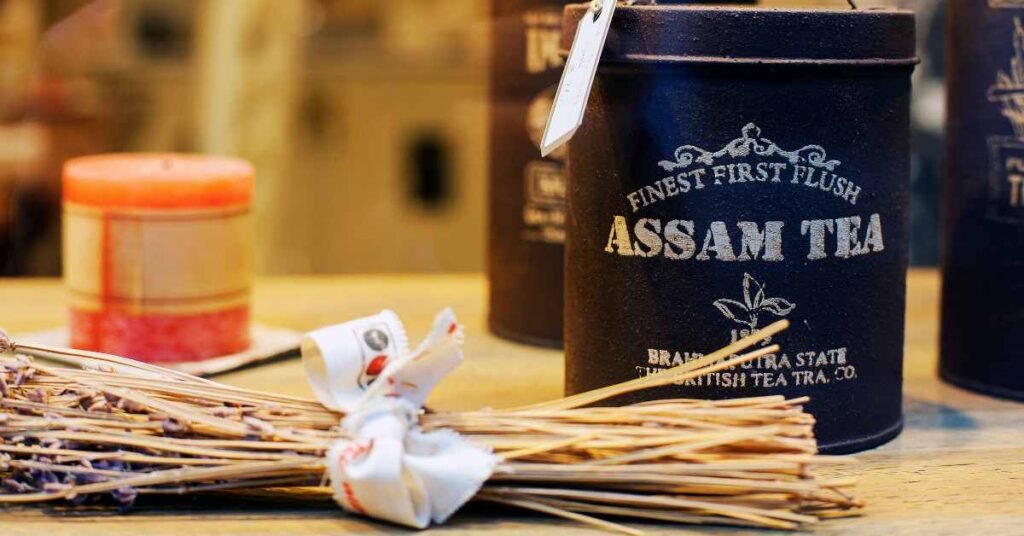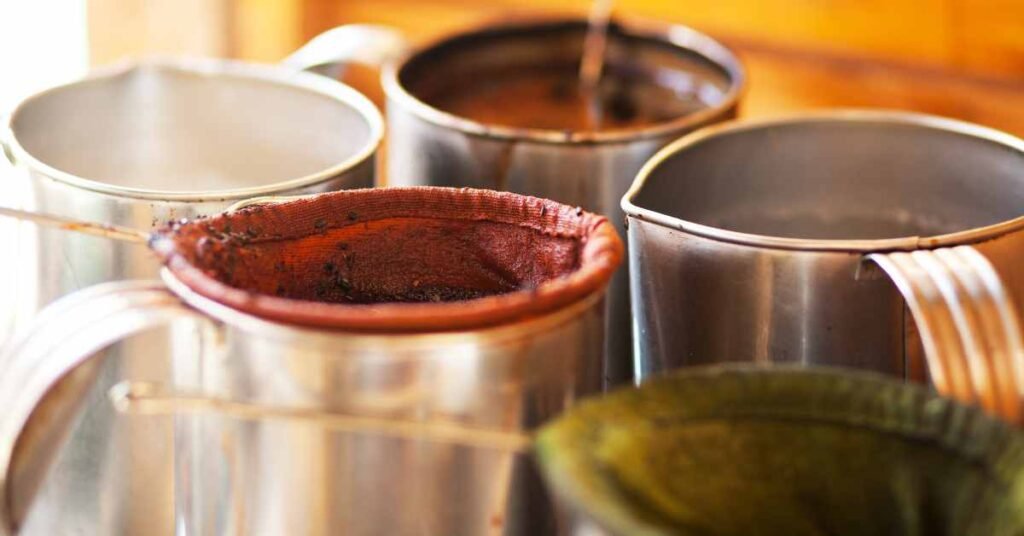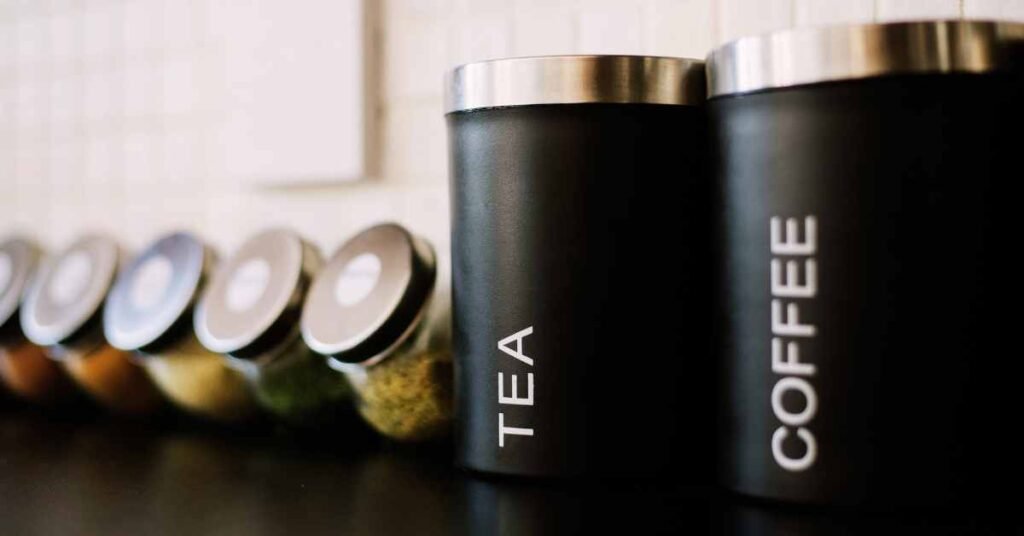Tea stands as an enduring symbol of tranquility and tradition.
Its delicate leaves, carefully plucked and artfully brewed, have been a source of solace for centuries.
But in a modern era defined by convenience and innovation, the question arises: Can tea be canned without sacrificing its essence?
Let’s delve into the fascinating realm where tradition meets technology, exploring the possibilities and challenges of preserving the calming elixir within the confines of a can.
Tea, with its myriad varieties and complexities, has long been cherished for its soothing properties.
From the rolling hills of China to the misty plantations of Darjeeling, the art of tea-making has been passed down through generations.

The careful dance of temperature, steeping time, and choice of leaves contributes to the creation of a beverage that transcends its humble origins.
The delicate flavors and nuanced aromas are, in many ways, a testament to the craftsmanship involved in the tea-making process.
Enter the world of canned tea—a concept that, at first glance, may seem at odds with the very spirit of this ancient brew.
Traditionally, tea enthusiasts may raise an eyebrow at the thought of a beverage that has been stripped of its ceremonial nuances, packaged within the cold confines of aluminum.
However, the growing demand for on-the-go lifestyles and the convenience of ready-to-drink options have given rise to an unexpected intersection between tradition and modernity.
Canned tea, as a concept, is not entirely new. In various Asian countries, canned green teas and sweetened varieties have been a staple for years, offering a quick respite from the hustle and bustle of daily life.
However, the recent surge in interest in premium and artisanal teas has led to a reevaluation of the possibilities within the canning industry.
Can tea truly retain its depth and character when encased in a metal cylinder?
Preserving the delicate dance of flavors and aromas within the confines of a can presents a unique set of challenges.
Tea, being a sensitive and reactive ingredient, is susceptible to changes in temperature, light, and air—all of which are factors that come into play during the canning process.

To overcome these hurdles, innovative techniques and advancements in canning technology are being explored by tea producers worldwide.
One of the primary concerns in canning tea is the potential for flavor degradation.
The intricate balance of tannins, polyphenols, and volatile oils that gives each tea its unique character can be easily disrupted by exposure to external elements.
To combat this, some producers have turned to nitrogen-flushing, a process that replaces the air within the can with nitrogen, creating a protective atmosphere that shields the tea from oxidation.
Another hurdle to overcome is the impact of heat during the canning process. Traditional brewing methods involve carefully controlled temperatures to coax out the desired flavors from the tea leaves.
Canning, which often involves heat pasteurization, runs the risk of altering the chemical composition of the tea.
To address this, some producers have embraced cold-brewing techniques, allowing the tea to steep at lower temperatures for longer periods, preserving its delicate nuances.
Beyond the technical aspects, the art of canning tea also involves a reconsideration of packaging design.
The can, once seen as a utilitarian vessel, must now serve as a canvas for the rich cultural tapestry that tea embodies.
Intricate illustrations, calming color palettes, and poetic descriptions adorn the labels, aiming to evoke the same sense of mindfulness that a traditional tea ceremony might inspire.
As the industry grapples with these challenges, success stories are beginning to emerge. Craft tea producers, in particular, are leading the charge in redefining the canned tea experience.
Small batches, attention to detail, and a commitment to quality are becoming the hallmarks of this new wave of canned teas.
Imagine cracking open a can of oolong infused with the misty essence of a mountain peak, or sipping on a sparkling jasmine tea that captures the delicate fragrance of a blooming garden.

These are the promises that canned tea pioneers are striving to fulfill.
Through meticulous sourcing of premium leaves and an unwavering dedication to the art of tea-making, they are pushing the boundaries of what was once thought possible in the canned beverage aisle.
Beyond the allure of convenience, the canned tea movement also carries a broader environmental message. With the growing emphasis on sustainability, the aluminum can presents itself as a more eco-friendly alternative to traditional packaging.
Recyclable and lightweight, cans reduce the carbon footprint associated with transportation and disposal, aligning with the values of a generation increasingly concerned with the impact of their choices on the planet.
In the world of canned tea, the journey is just as important as the destination.
As producers experiment with new blends, brewing techniques, and packaging innovations, consumers are invited to embark on a sensory adventure—one that challenges preconceived notions and invites them to savor the essence of tradition in a modern, portable format.
In conclusion, the question of whether tea can be canned is not merely a technical consideration but a philosophical exploration of the intersection between tradition and innovation.
As the industry navigates the delicate balance between preserving the integrity of the tea leaves and meeting the demands of a fast-paced world, the evolving landscape of canned tea offers a glimpse into the possibilities that arise when ancient rituals meet contemporary lifestyles.
So, the next time you reach for a can of tea, consider it not just as a beverage but as a vessel carrying the rich tapestry of tradition, sealed and ready to be unfurled with each refreshing sip.
MEDICAL DISCLAIMER
Itsnevernotteatime.com cannot and does not contain medical/health advice. The medical/health information is provided for general and educational purposes only and is not a substitute for professional advice.




